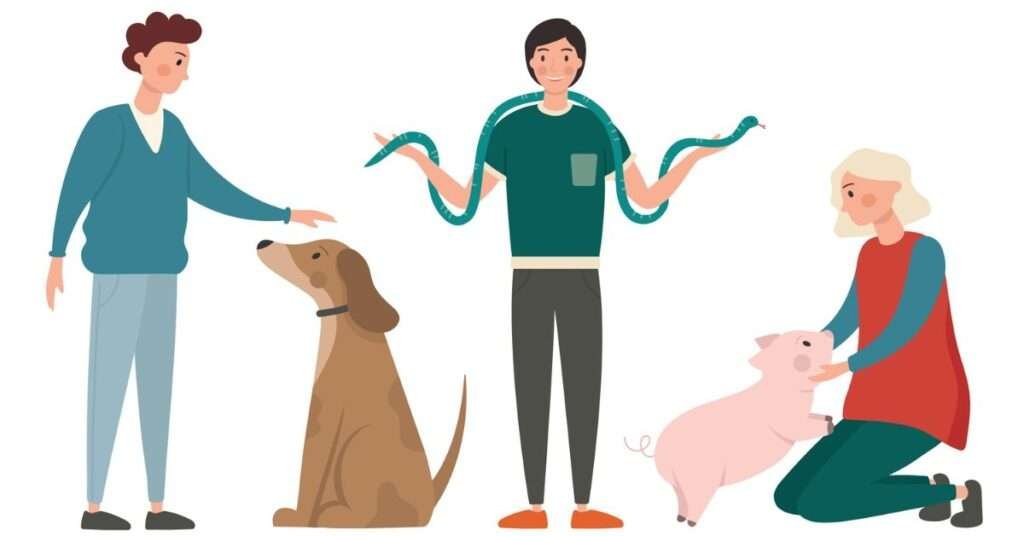You will have knowledge when you decide to pet adoption vs. Buying. Pet adoption and buying are two ways to bring a new pet into your home, but which one is right for you? The decision to adopt or buy a pet is a personal one that depends on a variety of factors, including lifestyle, budget, and personal preferences.
Also Read
While both options have their pros and cons, it’s important to weigh them carefully before making a decision.
Adopting a pet from a shelter or rescue organization is a popular choice for many people. Not only does it give a home to an animal in need, but it can also be a more affordable option than buying from a breeder.
Additionally, many shelters and rescues provide veterinary care and behavior training for their animals before they are adopted, which can save pet owners time and money in the long run.
However, it’s important to note that adopting a pet can come with some unknowns, such as the animal’s previous history and any potential health or behavior issues.
On the other hand, buying a pet from a breeder or pet store can offer more predictability in terms of breed, age, and temperament.
This can be a good option for people who have specific preferences or needs for their pets. However, buying a pet can also be more expensive and may not always guarantee a healthy or well-behaved animal.
It’s important to do thorough research on any breeder or pet store before making a purchase to ensure that they are reputable and ethical.
Understanding Pet Adoption
When considering adding a new pet to the family, it’s important to understand the process of pet adoption. Adopting a pet can be a fulfilling experience, but it’s crucial to be aware of the potential challenges and benefits that come with it.
The Adoption Process
The adoption process can vary depending on the organization or shelter. Generally, the process involves filling out an application, meeting with an adoption counselor, and possibly a home visit.
The adoption fee can also vary, and it often includes spaying or neutering, microchipping, and vaccinations.
It’s important to note that not all pets in shelters are “problem” pets. Many end up in shelters due to circumstances beyond their control, such as a family moving or the owner passing away.
It’s also worth mentioning that shelters often have a variety of breeds and ages available for adoption.
Benefits of Pet Adoption
Adopting a pet can have several benefits. For one, it can be a more affordable option than buying from a breeder.
Additionally, adopting a pet from a shelter can help save a life and make room for another animal in need. Adopting a pet can also provide a sense of fulfillment and companionship.
Potential Challenges of Adoption
While adopting a pet can be a rewarding experience, it’s important to be aware of the potential challenges that may arise. Shelter pets may have a history of abuse or neglect, which can lead to behavioral issues.
Additionally, it may take some time for the pet to adjust to their new home and family. It’s important to be patient and understanding during this transition period.
In summary, pet adoption can be a fulfilling and affordable option for those looking to add a new furry member to their family.
However, it’s important to be aware of the potential challenges and to approach the adoption process with patience and understanding.

Exploring Pet Buying
The Buying Process
Buying a pet typically involves searching for a reputable breeder or pet store, selecting a specific breed or type of animal, and paying a fee for the pet.
This process can be time-consuming and may require research to ensure that the pet is coming from a reputable source.
It is important to note that not all breeders or pet stores are created equal, and some may engage in unethical practices such as overbreeding or neglecting the animals in their care.
Benefits of Buying a Pet : Pet Adoption vs. Buying
When considering adding a new pet to the family, it’s important to understand the process
One of the main benefits of buying a pet is the ability to select a specific breed or type of animal that meets your preferences and lifestyle. Purebred animals are often sought after for their predictable temperament and physical characteristics.
Additionally, buying a pet from a reputable breeder or pet store may provide assurance that the animal has received proper care and medical attention.
Potential Challenges of Buying
Buying a pet can be expensive, with costs ranging from a few hundred to several thousand dollars, depending on the breed and location.
In addition to the initial cost of the pet, there may be additional expenses such as veterinary bills and training costs. It is also important to consider the potential health issues that may arise with purebred animals, as they may be more prone to certain genetic conditions.
Furthermore, buying a pet can contribute to the overpopulation of animals in shelters and rescues. By choosing to buy a pet rather than adopt, individuals may be indirectly perpetuating the cycle of pet homelessness and euthanasia.
In summary, buying a pet can be a viable option for individuals who have specific preferences and are willing to invest in the care and well-being of their animal.
However, it is important to carefully research and select a reputable breeder or pet store, and to consider the potential challenges and ethical implications of buying a pet rather than adopting from a shelter or rescue.
Financial Considerations
When deciding whether to adopt or buy a pet, one of the most important factors to consider is the financial aspect.
Both adoption and buying come with different costs, which can vary depending on the animal, breed, and location. Here are some financial considerations to keep in mind:
Cost of Adoption
Adopting a pet from a shelter or rescue organization can be more affordable than buying one from a breeder or pet store.
Adoption fees typically range from $50 to $300, depending on the animal and the organization. These fees usually include spaying or neutering, vaccinations, and microchipping, which can save pet owners hundreds of dollars in veterinary bills.
Moreover, many adult pets that come from previous families have already been housetrained, which can save pet owners a lot of time, headaches, and clean-up.
Additionally, adopting a pet from a shelter can help reduce the number of animals that are euthanized due to overcrowding in shelters.
Cost of Buying
Buying a pet from a breeder or pet store can be more expensive than adopting one from a shelter. The cost of buying a pet can range from a few hundred to several thousand dollars, depending on the breed and the location.
In addition to the initial cost of the pet, pet owners may also need to pay for spaying or neutering, vaccinations, and microchipping, which can add up to several hundred dollars.
Moreover, purebred animals may be more prone to certain health issues, which can result in higher veterinary bills. Breeders may also charge additional fees for breeding rights or pedigree papers, which can add to the overall cost of buying a pet.
In conclusion, when considering whether to adopt or buy a pet, it is important to take into account the financial aspect.
While adoption can be more affordable and come with additional benefits, buying a pet can be more expensive and may come with additional costs.
Ultimately, the decision should be based on what is best for the individual and their lifestyle.

Ethical Considerations
When deciding whether to adopt a pet or buy one, there are several ethical considerations to keep in mind. While both options have their merits, adopting a pet is generally considered more humane and ethical.
Breeding Practices
One of the main ethical concerns with buying a pet is the breeding practices of some breeders. Many breeders prioritize profit over the welfare of animals, and as a result, animals are often bred in unsanitary and inhumane conditions.
This can lead to health problems and behavioral issues later in life. Additionally, buying a pet from a pet store may contribute to the demand for animals bred in such conditions.
In contrast, adopting a pet from a shelter or rescue organization means acquiring one that has been rescued from a potentially dangerous or unhealthy situation. Adoption fees often include spay/neuter services, initial vaccinations, and microchipping, proving to be an overall more economical option.
Overpopulation
Another ethical consideration is the issue of pet overpopulation. Every year, millions of animals end up in shelters, and many of them are euthanized due to lack of space or resources. By adopting a pet, individuals can help reduce the number of animals that end up in shelters and potentially save a life.
Personal Responsibility
Finally, it is important to consider the personal responsibility that comes with owning a pet. Pets require time, attention, and resources, and it is crucial that individuals are prepared to provide for their pet’s needs before bringing them into their homes.
Adopting a pet means taking responsibility for an animal that may have been neglected or mistreated in the past, while buying a pet means taking responsibility for an animal that has been intentionally bred for profit.
Overall, when considering the ethical implications of pet adoption vs. buying, adopting a pet from a shelter or rescue organization is generally considered the more humane and responsible choice.
Making the Right Choice for You
Deciding whether to adopt a pet or buy one can be a difficult decision. Both options have their advantages and disadvantages, and ultimately, the right choice depends on your individual circumstances and preferences.
Consider Your Lifestyle
Before making a decision, it’s important to consider your lifestyle. Do you have a lot of free time to devote to a pet, or are you often busy with work or other commitments? Do you live in a house with a yard, or in an apartment with limited space?
If you have a busy lifestyle or limited space, adopting a pet may be a better option. Many shelter pets are already trained and may require less attention and exercise than a puppy or kitten.
On the other hand, if you have more time to devote to a pet and are looking for a specific breed or age, buying from a breeder may be a better option.
Consider Your Budget
Another important factor to consider is your budget. Adopting a pet from a shelter is typically less expensive than buying from a breeder.
Adoption fees usually cover vaccinations, spaying or neutering, and microchipping, which can save you a lot of money in the long run.
However, if you have your heart set on a specific breed or want a pet with a certain temperament, buying from a breeder may be worth the extra cost. Just be sure to choose a reputable breeder who follows ethical breeding practices.
Consider Your Values
Finally, it’s important to consider your values. Some people prefer to adopt a pet to give a second chance to an animal in need, while others prefer to buy from a breeder to ensure a certain level of quality and predictability. There is no right or wrong answer, and the decision ultimately comes down to personal preference.
Regardless of whether you choose to adopt or buy a pet, it’s important to do your research and make an informed decision. Consider all of the factors discussed above, and choose the option that is best for you and your lifestyle.

Frequently Asked Questions
What are the benefits of adopting a pet?
Adopting a pet comes with numerous benefits. Firstly, adoption fees are generally lower than purchasing a pet from a breeder.
Additionally, most shelter pets are already spayed/neutered and have received vaccinations and microchipping. Adopting a pet also helps to reduce the number of animals in shelters, and it’s a great way to give a loving home to an animal in need.
What are the drawbacks of buying a pet from a breeder?
Buying a pet from a breeder can be expensive, and there is no guarantee that the animal will be healthy or have a good temperament. Additionally, breeders often prioritize physical appearance over health and temperament, which can lead to genetic problems and behavioral issues.
What are the advantages of buying a pet from a pet store?
Buying a pet from a pet store can be convenient, as you can usually find a variety of pets in one place. However, it’s important to note that many pet stores source their animals from puppy mills, which are notorious for their inhumane treatment of animals.
It’s important to do your research and only buy from reputable pet stores that source their animals responsibly.
What are the disadvantages of adopting a pet?
One potential disadvantage of adopting a pet is that you may not know much about the animal’s history or temperament.
Additionally, some shelter pets may have behavioral issues that require extra training and attention. However, many rescue organizations work to provide as much information as possible about each animal, and many pets are already housetrained and socialized.
Are rescue dogs more difficult to train than dogs from breeders?
There is no evidence to suggest that rescue dogs are more difficult to train than dogs from breeders. In fact, many rescue dogs have already been housetrained and socialized, which can make the training process easier.
Additionally, rescue organizations often provide training resources and support to help new pet owners adjust to life with their new pet.
What are the reasons people choose to buy a dog instead of adopting one?
Some people choose to buy a dog instead of adopting because they want a specific breed or are looking for a puppy.
Additionally, some people may have had negative experiences with rescue organizations in the past or may be concerned about potential behavioral issues in shelter pets.
However, it’s important to remember that there are many loving animals in shelters and rescue organizations, and adopting a pet can be a rewarding and fulfilling experience.





1 thought on “Pet Adoption vs. Buying: Choosing the Best Option”
Comments are closed.